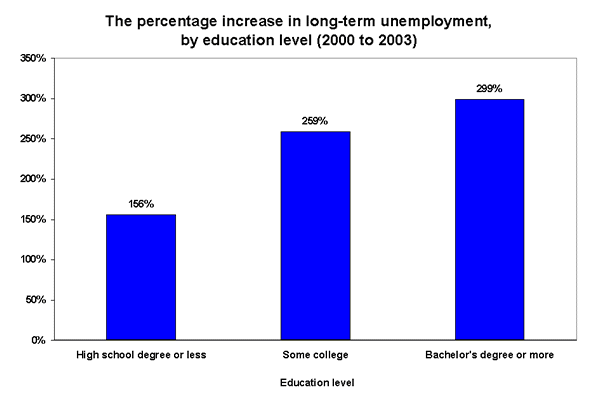See Snapshots Archive.
Snapshot for February 11, 2004.
The highly educated are the latest victims of the weak recovery
The weak recovery has led to dramatic increases in long-term unemployment—workers searching for jobs who remain unemployed for 27 or more weeks. Increasingly, it is the most highly educated Americans who are victims of the rise in long-term unemployment.
The figure below shows the percentage increases in long-term unemployment from 2000 to 2003 among people of different education levels. Overall unemployment also increased over the same period, rising from 5.7 million in 2000 to 8.8 million in 2003. The annual level of long-term unemployment was 649,119 in 2000; by 2003, this number had risen to 1.9 million.

Both the increase in overall unemployment and the increase in the number of long-term unemployed have differed by education level. Total unemployment has increased 40%, 74%, and 95%, respectively, for workers with a high school degree or less, some college education, and a bachelor’s degree or more. But long-term unemployment has increased at much greater rates—156%, 259%, and 299% for each educational group, respectively.
In all recessions, the least educated have suffered disproportionately. However, the current recession and weak recovery are unique in the extent to which workers with substantial education are also economic victims.
Source: Author’s analysis of Current Population Survey data.
This week’s snapshot was written by EPI economist Sylvia Allegretto.
